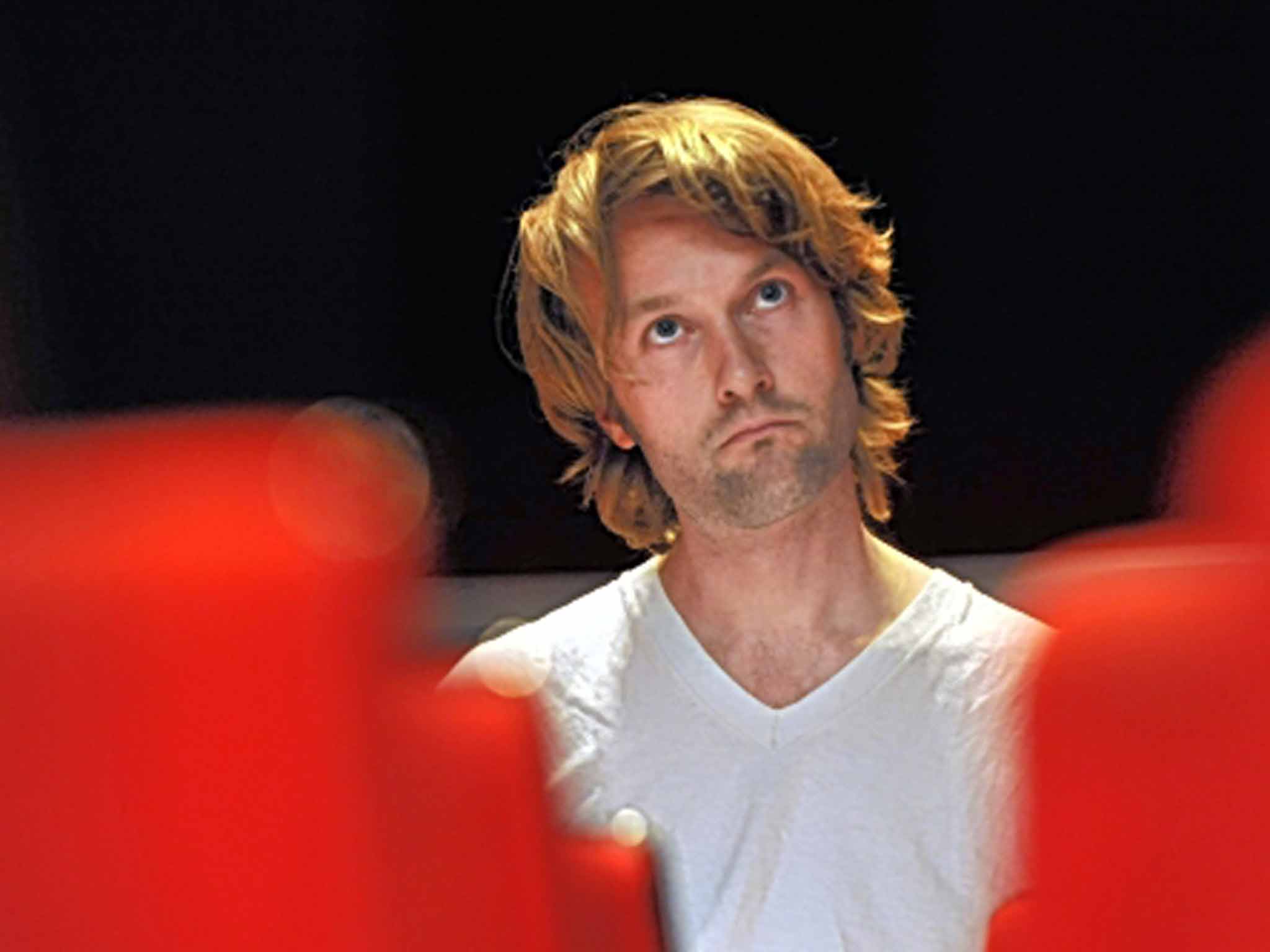Gabriel Prokofiev on the BBC's Ten Pieces, Nonclassical, and a new Carnival of the Animals
The grandson of Sergei tells Jessica Duchen how he aims to break the status quo in classical music

Your support helps us to tell the story
From reproductive rights to climate change to Big Tech, The Independent is on the ground when the story is developing. Whether it's investigating the financials of Elon Musk's pro-Trump PAC or producing our latest documentary, 'The A Word', which shines a light on the American women fighting for reproductive rights, we know how important it is to parse out the facts from the messaging.
At such a critical moment in US history, we need reporters on the ground. Your donation allows us to keep sending journalists to speak to both sides of the story.
The Independent is trusted by Americans across the entire political spectrum. And unlike many other quality news outlets, we choose not to lock Americans out of our reporting and analysis with paywalls. We believe quality journalism should be available to everyone, paid for by those who can afford it.
Your support makes all the difference.Gabriel Prokofiev is pondering, over a Turkish lunch near his Bethnal Green studio in London, an unexpected development in his career as composer: the BBC has just picked a movement from his Concerto for Turntables and Orchestra for its new Ten Pieces list for schoolchildren aged 11 to 14. This concerto's mingling of classical format and very contemporary idiom – the scratching and sampling of a DJ on turntables – should be an ideal way in to the sometimes mysterious spheres of contemporary classical music.
The initiative is the second stage in the BBC's nationwide project to help schools introduce pupils to classical music, launched last year for younger children. "I'm thrilled to be included," Prokofiev says. "I'm a big fan of the Ten Pieces idea. It's worrying that music education doesn't seem to be thorough enough, so it's exciting to see a contemporary piece in there. Hopefully it's a chance to encourage young people at the age when they're developing their tastes."
You might assume, nevertheless, that the name "Prokofiev" indicates the great Russian composer Sergei Prokofiev (1891-1953). Gabriel, 40, is his grandson. In many ways he is a chip off the old block, sharing with Sergei an intent gaze, high cheekbones and a quiet demeanour.
The younger Prokofiev, though, is a Londoner through and through. He lives in Hackney with his partner, a French-Congolese academic, and their three children. The urban flavour of his music remains powerful: a mix of driving rhythms, gritty timbres and jagged outlines, yet with a lyrical thread lurking under the surface that occasionally recalls the flavour of his grandfather's works. His Violin Concerto 1914, premiered at last year's Proms, includes a Prokofiev-like March, full of sardonic bite.
"I love my grandfather's music and I grew up listening to it," he says. But fear of comparison caused him to hesitate over becoming a composer. "At the start I was definitely intimidated," he admits. "So I focused on electronic and dance music and playing in bands. But as I got more confident and ultimately had a strong enough drive for classical music, I realised I've just got to get on with it. When I was writing my first string quartet I planned at first to use a different surname – and the idea freed me up a bit."
Prokofiev's father, Oleg Prokofiev (Sergei's younger son) was a painter and sculptor, a prominent figure in the Nonconformist movement of Russian artists whose abstract work was at odds with socialist realism. His second wife, a British art historian, died tragically young; attending her funeral in the UK, Oleg defected to the West. He remarried and settled in Greenwich, where Gabriel and his siblings grew up.
Echoes of nonconformity now pepper Prokofiev's musical life. A decade ago he started a record label and performance series called Nonclassical, whose pioneering classical club nights have since evolved into a veritable movement in its own right. "I felt strongly that my classical stuff would appeal to my peer group, but when it was performed in the traditional classical setting most of the audience would be twice my age. There's nothing wrong with that, but it seemed a shame that my friends weren't there," he says. "That was a big motivator in getting Nonclassical going: thinking you've got to present classical music like other music. For me that seemed pretty obvious.
"I'm always surprised how many young composers don't question a status quo that gives them so few performances and reaches such limited audiences," he adds. "We need to find ways to get our music out there and reach our own peer group. It feels unfair that so much great contemporary music is not made accessible to more people. You can sit back and blame radio and TV – or you can get out and do something about it."
Prokofiev, meanwhile, is tackling a string of commissions, including a second concerto for turntables – and some new musical creatures to add to the Carnival of the Animals by Saint-Saëns. What about a cat? Unfortunately, his grandfather created music's best-loved cat in that perennial childhood favourite Peter and the Wolf. "Probably a no-go area," Prokofiev smiles.
'Gabriel Prokofiev's 'Concerto for Turntables and Orchestra' (5th movement) is part of the BBC's Ten Pieces Secondary initiative. More information: bbc.co.uk/tenpieces
Join our commenting forum
Join thought-provoking conversations, follow other Independent readers and see their replies
Comments